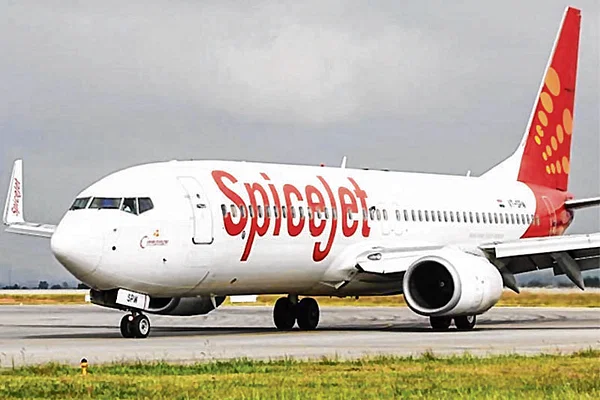The Delhi High Court has once again deferred the hearing of a plea filed by Sun Group chairman Kalanithi Maran against budget airline SpiceJet over an arbitral award. The case, which involves a significant financial dispute, has been adjourned to October 13. This marks the second consecutive adjournment without a hearing, providing SpiceJet with temporary relief from its legal obligation to settle Maran’s outstanding dues.
Last month, SpiceJet made a partial payment of ₹100 crore to Kalanithi Maran, out of the ₹397 crore it owes him. According to the Delhi High Court’s order dated August 24, the airline had been directed to make this payment to Maran by September 10.
In the ongoing arbitration award execution case, Kalanithi Maran had alleged that SpiceJet had willfully disobeyed orders, thereby forfeiting its right to be heard in court. He sought the court’s intervention to seize the entirety of SpiceJet’s ₹204 crore profit, along with future profits, if the outstanding debt was not paid.
In response, SpiceJet argued that the demand for immediate payment could push the airline into insolvency, a scenario that would not benefit the Maran family, as they would become operational creditors. The airline pointed to various factors contributing to its financial difficulties, including the acquisition of Boeing 737 Max aircraft that regulatory authorities have disallowed, losses attributed to the COVID-19 pandemic, and rising fuel prices due to the Ukraine conflict.
The backdrop of this legal dispute dates back to February 2015 when Kalanithi Maran transferred his entire shareholding in SpiceJet to Ajay Singh, the current chairman and managing director of the airline. This transfer occurred after SpiceJet faced severe financial challenges in 2014-15 due to a significant cash shortage. Singh, who acquired the airline for a nominal sum of ₹2, also inherited SpiceJet’s liabilities of ₹1,500 crore.
As part of the agreement, Maran and Kal Airways made payments totaling ₹679 crore to SpiceJet under Singh’s leadership. These payments were meant to facilitate the issuance of warrants and preference shares. However, in 2017, Maran approached the Delhi High Court, alleging that SpiceJet had not fulfilled its obligations by issuing the convertible warrants and preference shares or returning the money.
In July 2018, an arbitration panel rejected Maran’s plea for damages amounting to ₹1,323 crore for non-issuance of warrants to him and Kal Airways. Instead, the panel awarded a refund of ₹579 crore plus interest.
In 2020, the Delhi High Court ordered SpiceJet to deposit ₹243 crore as interest payment. On February 13, the Supreme Court issued directions for the immediate encashment of SpiceJet’s bank guarantee worth ₹270 crore, which was to be paid to Maran and Kal Airways as part of the arbitral award. Additionally, the apex court ordered SpiceJet to pay ₹75 crore in interest to Maran and Kal Airways within three months. On July 7, the Supreme Court denied any further extensions to SpiceJet.
In addition to the ongoing legal battle with Kalanithi Maran, SpiceJet is also contending with a legal challenge in the Supreme Court initiated by Credit Suisse due to a payment default. On September 22, the Supreme Court granted SpiceJet permission to make monthly payments of $1 million to Credit Suisse over the next six months to settle its outstanding dues.
These legal challenges pose significant financial and operational hurdles for SpiceJet within the aviation industry.
